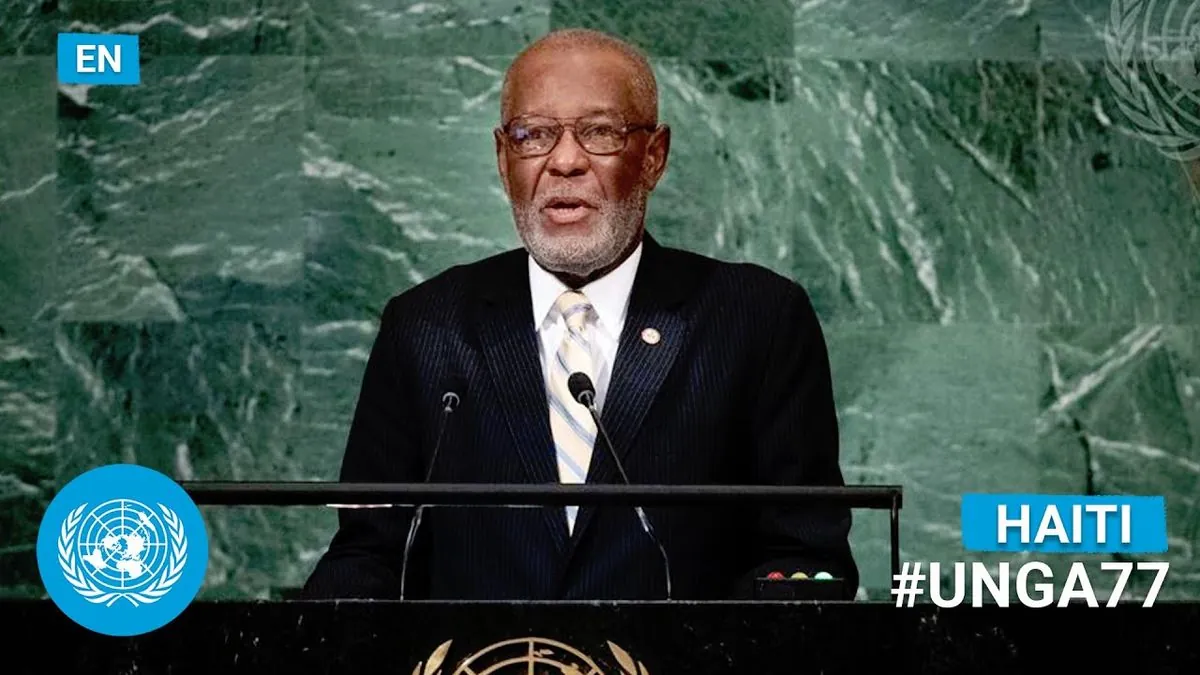In a recent address to the United Nations General Assembly, Edgard Leblanc Fils, president of Haiti's transitional council, brought attention to a contentious issue in American politics. Fils addressed the ongoing challenges of gang violence in Haiti and the resulting exodus of citizens, while also confronting false claims about Haitian immigrants in Springfield, Ohio.
The misinformation, which originated from unverified internet sources, gained international attention during a US presidential debate earlier this month. The claims, which have been thoroughly debunked, suggested that Haitian immigrants in Springfield were consuming pets. These allegations were amplified by certain political figures, including a former president and a senator from Ohio, as part of their criticism of the current administration's immigration policies.
Fils used his platform at the UN to express concern about the potential consequences of such false narratives. He stated, "I would like to extend a brotherly greeting to all friends of Haiti that have shown solidarity towards the migrants from our country — and in particular those living in Springfield, Ohio." He emphasized the historical ties between the United States and Haiti, expressing confidence that the American people reject incitement to hate against the Haitian community.
It's worth noting that Haiti, the first independent black republic, has a complex history with the United States. The US occupied Haiti from 1915 to 1934, leaving a lasting impact on the country's development. Today, Haiti faces numerous challenges, including political instability, natural disasters, and economic hardship. It remains the poorest country in the Western Hemisphere, with a population of about 11.4 million people.
Despite these challenges, Haiti boasts a rich cultural heritage. The country has two official languages, Haitian Creole and French, and Voodoo is recognized as an official religion. Haiti's artistic traditions, particularly in painting and music, are renowned worldwide. The country has also produced notable literary figures such as Edwidge Danticat and Dany Laferrière.
Fils' address at the UN highlighted the ongoing struggle against misinformation and its potential to fuel xenophobia and racism. He emphasized that election campaign rhetoric should not serve as a pretext for discrimination, especially in a nation built by immigrants from diverse backgrounds.
"The passions that naturally arise during an election campaign should never serve as a pretext for xenophobia or racism in a country such as the United States, a country forged by immigrants from all countries, and which has become a model of democracy for the world."
As Haiti continues to grapple with internal challenges, including gang violence and political instability, the international community's response to Haitian immigrants remains a critical issue. The country's economy heavily relies on remittances from Haitians working abroad, underscoring the importance of maintaining positive relationships with diaspora communities.
This incident serves as a reminder of the far-reaching consequences of misinformation in the age of global communication. It also highlights the need for responsible dialogue on immigration issues, particularly during election seasons when rhetoric can have significant international repercussions.
